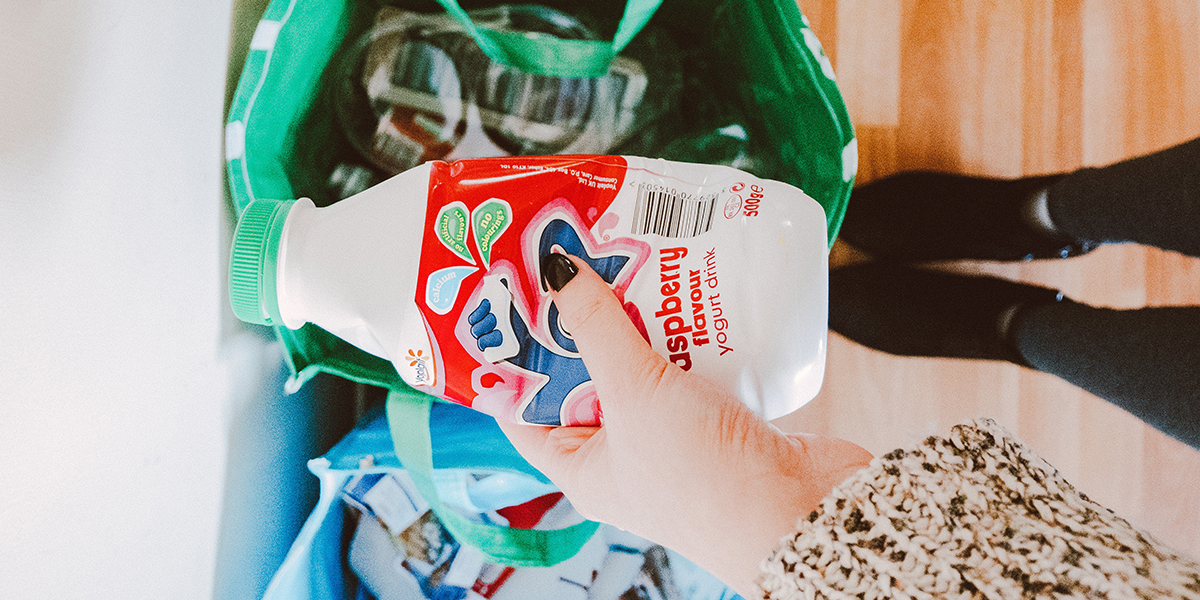
Taking the rubbish out
We’ve waged our very own war on waste here at Sense in an effort to become a more eco-friendly business.
We hate to admit it (we really do) but there was a time the Sense office was not so sustainably minded. In days past, our office was sending around 90% of its rubbish to landfill and purchasing consumables with no consideration for the environment. Pretty embarrassing in retrospect. Fortunately, we can say there has been an almost complete turnaround, but it’s been neither quick nor straightforward.
Is this recyclable?
Our first small step was adding extra bins under the desks for recyclables. They were black, discreet, numerous…and didn’t really work. The savvy recyclers took to the system but we discovered that making it easier for people to recycle doesn’t automatically mean they’ll do it. Our cleaners spent a lot of time picking the wrong things out of bins.
Like many Australians, an ingrained attachment to single-use plastic bags was also a hard habit to kick. But, in 2017 we laid down the law and banned plastic bags from remaining in the office. Controversial! But people got used to it. Even so, it wasn’t until the supermarkets started charging a plastic bag fee that we saw real change.
The universe aligns
After two years the amount of rubbish sent to landfill approximately halved. A great result, although there was still plenty of confusion about what goes in which bin. To be fair, the variability in Australia’s recycling rules across states and councils causes much of this confusion. But, we do our best and consult our regularly updated recycling cheat sheet to keep up with the changing nature of products and council requirements.
Last year we took a big step forward thanks to a serendipitous series of events. We upgraded our recycling system with the help of some nifty Method Recycling bins. Our local supermarket started accepting soft plastics return (the RedCycle program) and we joined the local community composting system (Condell Growers & Sharers). These new systems were implemented together exactly a year ago with an all-staff demonstration so everyone knew we were serious about wanting change.
Because we’re required to record the weight for the organic waste we drop off at the compost bin, we know adopting this practice alone has helped us divert half a tonne from landfill every year. Excellent statistic! The amount we do send to landfill isn’t measured but by observation, it has plummeted. As a bonus, it’s made our kitchen, which doubles as a meeting room, much more pleasant to use!
Small changes make a big difference
So the progress we’ve made has been a credit to everyone – the enthusiasts and the reluctant followers all – and we are raring to do more. For example, we’ve reviewed all our office consumables – from paper (our biggest resource) through to hand-wash, fruit and toilet paper. We now ensure we purchase according to what is best for the environment even if that costs a bit more, and we repair rather than buying new. We have also conducted an analysis of our carbon footprint and are investigating ways to offset our emissions, something we’ll repeat every year.
Now that we are at this better place, with all systems humming along nicely, it seems odd that it took us so long. The seemingly ever-changing recycling advice from authorities was one reason. But the biggest by far and one that needs continual attention is changing people’s behaviour. We’ve managed to do it with a persistent combination of written information, group persuasion, emotional pleadings via Slack and even office pop quizzes. Feel free to use any of these tactics in your own office war on waste.
Other things that have been learned: you need to have a champion at the director level (thanks Guillaume) and while we’re probably never going to be as good as the Germans at recycling, it doesn’t mean we should stop trying.
Back to Posts